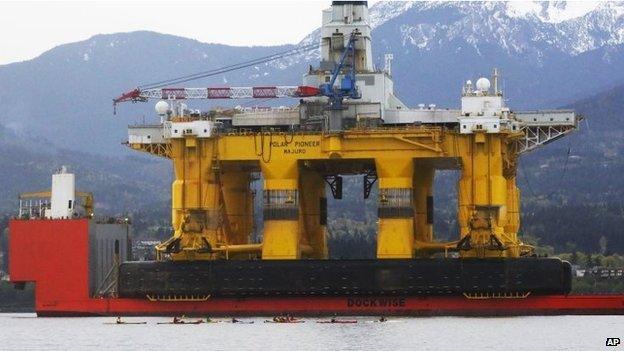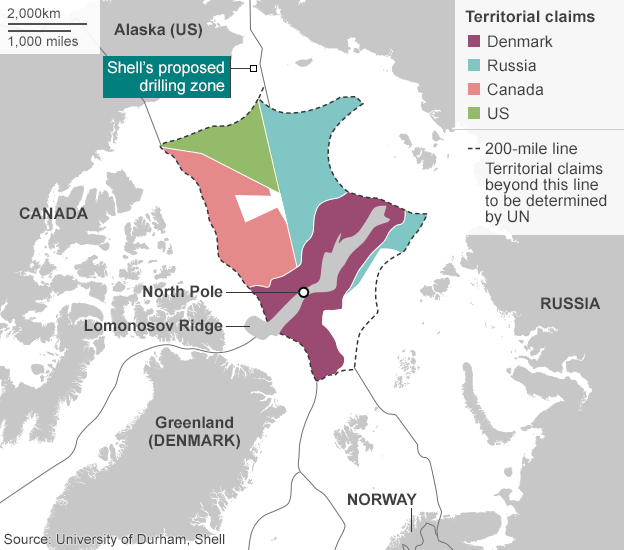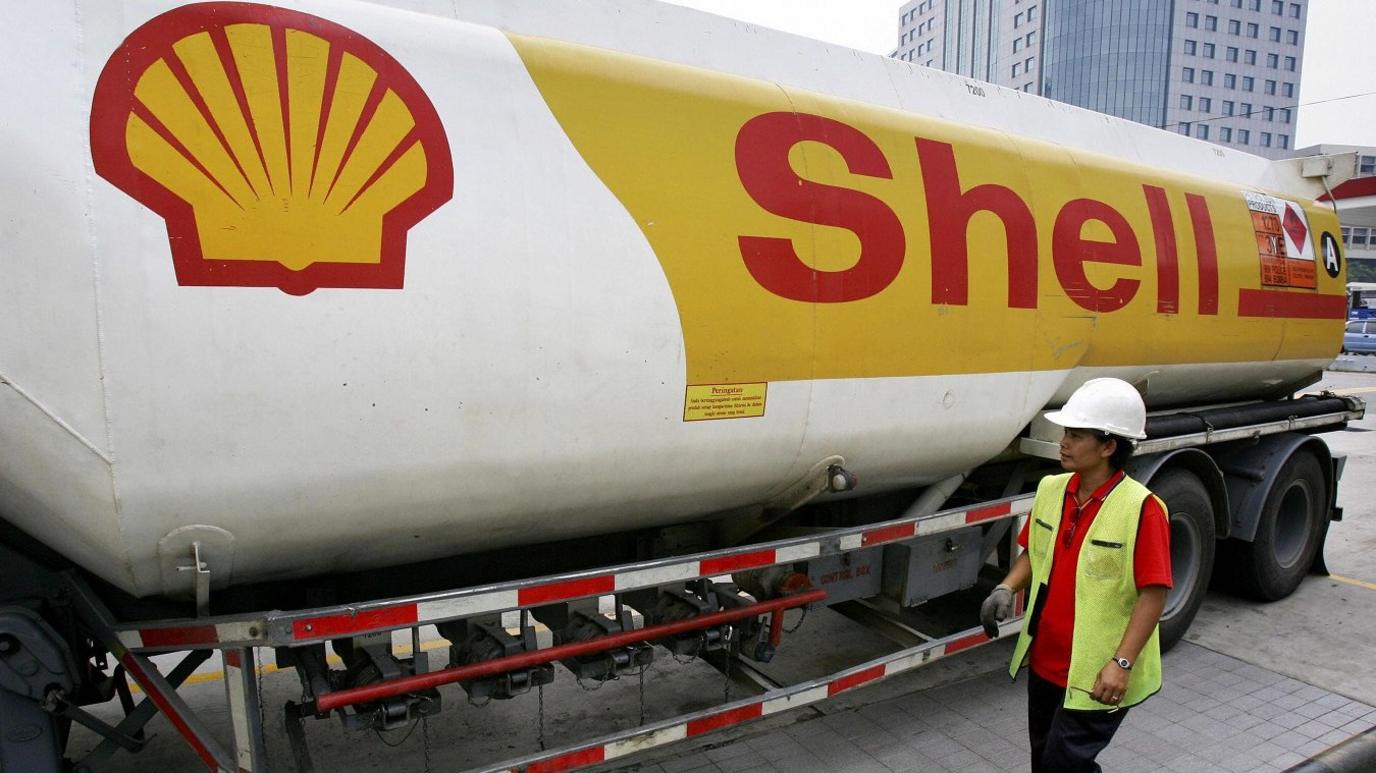Shell gets 'conditional' US Arctic drilling approval
- Published

Oil firm Royal Dutch Shell has won approval from the US Department of Interior to explore for oil in the Arctic.
The approval depends on Shell getting a nod from other US regulators, the Bureau of Ocean Energy Management said.
Shell stopped Arctic exploration more than two years ago after problems including an oil rig fire and safety failures.
Environmental campaigners oppose the move.
Shell has spent about $6bn (£3.85bn) on exploration in the Arctic - a region estimated to have about 20% of the world's undiscovered oil and gas.

The Anglo-Dutch company wants to drill up to six wells in water about 40 metres deep, using two vessels that can serve as backups in the event of an emergency.
"We have taken a thoughtful approach to carefully considering potential exploration in the Chukchi Sea," said Abigail Ross Harper, director of the Bureau of Ocean Energy Management, in a statement, external.
This conditional approval means Shell must obtain permits from the federal government and the state of Alaska to begin drilling this summer.
Susan Murray, an official at Oceana, a group against Arctic drilling, said: "Our government has rushed to approve risky and ill-conceived exploration in one of the most remote and important places on Earth."
Milestone
Among Shell's woes the last time it tried to drill in the area were its failure to have a spill-response barge on site before the drills reached oil-bearing zones, as it had promised, and the outbreak of fire on the Noble Discoverer rig that Shell had hired.
The Kulluk, a circular drilling barge, broke away from its towing vessel and ran aground on its way to a shipyard in Washington state.
"The approval of our Revised Chukchi Sea Exploration Plan is an important milestone and signals the confidence regulators have in our plan," said Shell spokesman Curtis Smith.
- Published29 January 2015

- Published29 January 2015